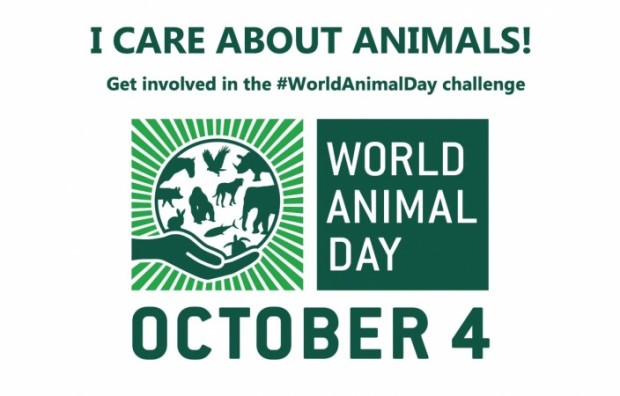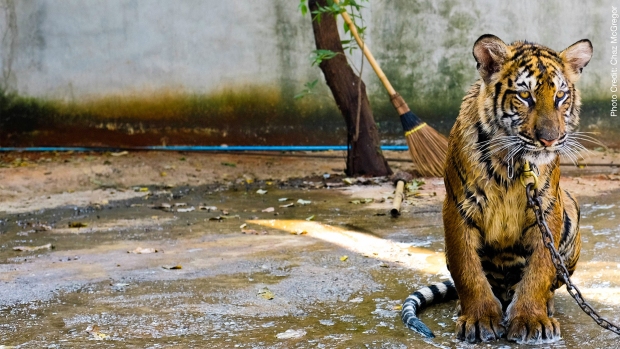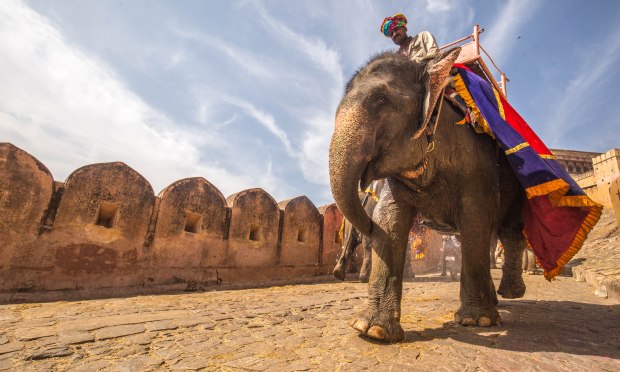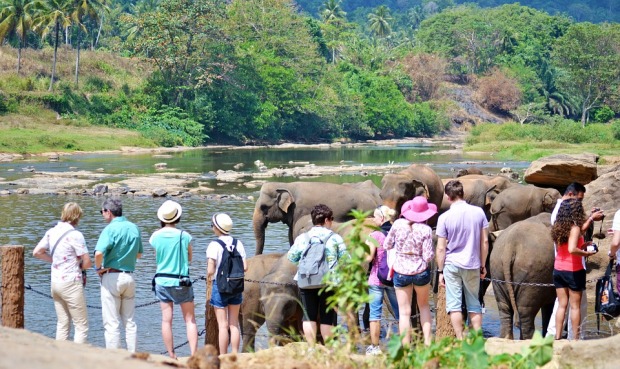Today, we have collaborated with Animals Different and Equal (aka Animals DAE) to bring you our reasons why we and YOU should always travel animal friendly.
Paulinna, Founder of Animals DAE
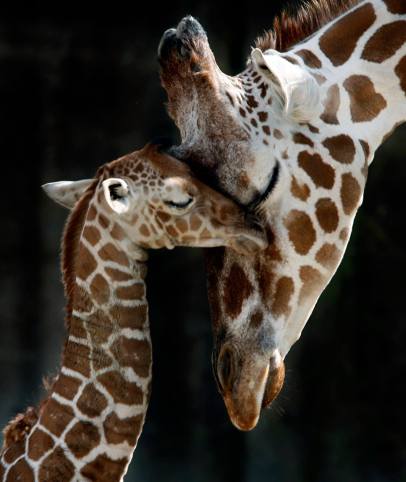
Why do I find it important to travel animal friendly? Because animals are people too.
That’s right – just like humans, animals experience physical and emotional pain. They get anxious around unfamiliar environments and people, they become exhausted and hurt whilst training and performing for humans – a lot more truths like these are invisible to us as many lack a better understanding of them.
Animals are different and fascinating, and people travel around the world to see different animals because we love them. Unfortunately, this fascination about animals has driven an exponential growth in animals in entertainment. While some companies understand to treat animals with respect and appropriate care, many rush to cater to the booming number of tourists, disregarding the well-being of many of these animals.
In order to stop such mistreatment and disrespect, it is crucial that as tourists or visitors, we do not give reason for unethical companies to continue their dirty work. Instead, we need to work together to look out for signs of animal mistreatment, and appropriately choose ethically operating businesses for the sake of our animals.
We love seeing animals and observing their natural and very different lifestyles to ours – but there is nothing natural about animal abuse and mistreatment. Make informed decisions about your next visit to give our animals the same happiness they are giving you.
Emily, Founder of By Their Side
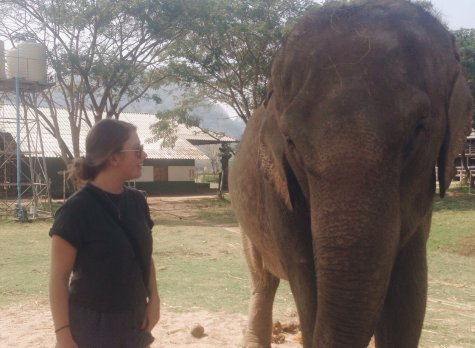
Me and my new mate at Elephant Nature Park.
I think you’ve heard a lot from me these past 8 weeks so I’ll keep it short and simple! Being animal friendly when you travel means you always show respect – for the people, the culture, the environment and the animals, in every country you visit! It is so important to attend places that put animal welfare first. These kinds of places can allow visitors to interact with different animals in meaningful ways, including feeding, bathing and walking with them — without supporting their gross exploitation.
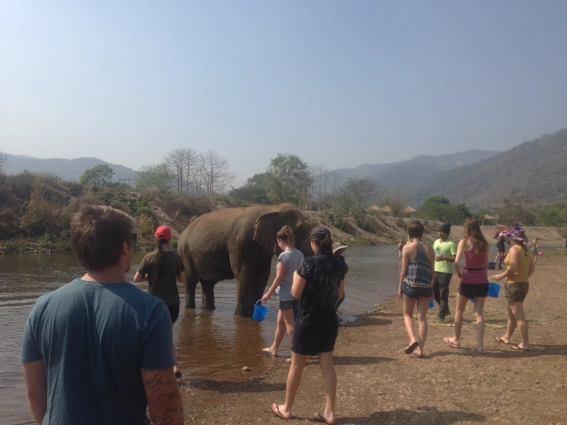
Washing the big friendly giants in the river at Elephant Nature Park.
After spending two days at Elephant Nature Park in Thailand, I caught a unique glimpse into the world of elephants. I was thrilled to finally experience it. Places such as these teach you the value of conservation- a reminder that we share our earth with others. You leave instilled with deep respect and compassion not just for elephants but all non-human creatures that belong in the wild.
Are YOU dedicated to travelling animal friendly? Have we convinced you to do so? Let us know what you think! Comment below or catch us on Facebook!
Also, make sure you check out the AWESOME work of Animals DAE on their WordPress, Facebook and Twitter pages.

– EB






